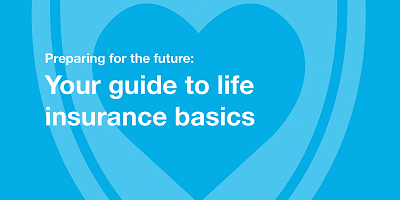Health insurance is the primary vehicle that most consumers use to pay for medical and hospital bills. There is public health insurance such as Medicare and Medicaid, which some may qualify for depending on age, income and family size. There is also private health insurance. Within the category of private health insurance, there are significant differences between a health managed organization (HMO) and a preferred provider organization (PPO) plan. Depending on the type of private health insurance you select, there will be certain benefits and limitations. While most financial planners will encourage you to carry a form of private coverage, it can come with some disadvantages that should be considered when you purchase a policy. Here is a list of the pros and cons of private health insurance that you should know about in order to make the choice that is right for you.
Health managed organization
An HMO provides access to a network of providers who agree to offer their services at a specific rate. HMOs often provide access to primary care at a lower rate, assuming the member chooses a medical professional who is in network.
Another characteristic of an HMO is that referrals are required to access specialists. For example, if you were experiencing headaches, you would first need to schedule an appointment with your in-network primary care physical (PCP) who would perform an evaluation and determine if you need to see a neurologist. In this way, care is coordinated through your PCP.
When considering if an HMO is right for you, here are some things to think about:
- HMOs typically cost less than PPOs.
- An HMO may be a good option if you don’t have many health problems and therefore little need to visit specialists and/or if you don’t mind coordinating care through your PCP.
- An HMO can be a good option if you’re not particular about the healthcare provider you see and are happy to choose from the network of providers.
Preferred provider organization (PPO)
A PPO includes a network of healthcare providers with both primary care and specialists. PPOs offer greater flexibility than HMOs because a referral is not required to see a specialist. You may also see providers out of network, though you will have to pay higher copays to do so.
Keep in mind the following when deciding if a PPO is the best option for you.
- PPOs offer more control over your own care, allowing you to visit specialists without prior authorization from your PCP.
- PPOs are typically more expensive than HMOs.
- PPOs may offer more flexibility if you find yourself in need of specialists’ care or already have doctors that you want to see, even if they are not in-network.
Advantages of private health insurance
Of course, the most obvious advantage is that private health insurance can provide coverage for some of your healthcare expenses. Doctor's visits, trips to the emergency room and specialist treatments may be paid for (either in part or in whole) by this type of insurance. With health insurance, large hospital bills associated with surgery or other major treatments may also be covered depending on your specific policy. And a PPO health insurance plan may also allow you to choose your own doctor, although you may pay more if he or she is not included in the network maintained by your health insurance carrier.Private coverage also usually comes with more choices than those offered by public plans such as Medicare. This could allow you to choose the options that you are most likely to need and omit those that you don't. The experiences that come with private health insurance might include shorter wait times, greater individualized attention and more sophisticated facilities. Public facilities can be overcrowded at times and may provide a lower level of care in many cases.
Disadvantages of private health insurance
As you might expect, the greatest disadvantage of private health insurance can be the cost. This is especially true if you are in poor health and do not have access to group coverage of any kind. Many individual policies can cost several hundred dollars a month, and family coverage can be even higher. And even the more comprehensive policies come with deductibles and copays that insureds must meet before their coverage kicks in.
Most health insurance policies don't offer coverage for all types of diseases and conditions. Those who need care that falls into one of the gaps that are written into these policies are on their own when it comes to paying for certain medical services. Furthermore, the cost of healthcare has risen much faster than the general rate of inflation, and this trend shows no sign of slowing.
These are just some of the advantages and disadvantages of private health insurance in the marketplace today. For more information on types of health insurance, contact your employer benefit representative or your financial professional.
In summary, here are some of the pros and cons of using private health insurance.
Pros
- Multiple options so you can choose the best plan to meet your individual needs
- Generally offers greater flexibility and access to care than public health insurance
- Can cover the cost of expensive medical care that may arise unexpectedly
Cons
- Expensive with premiums rising each year
- Does not guarantee complete access to care
If you'd like to learn more about saving for healthcare or how healthcare can impact your family budget, explore the Protective Learning Center.
WEB.446016.10.16




